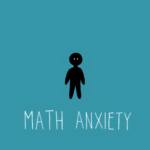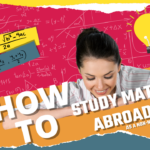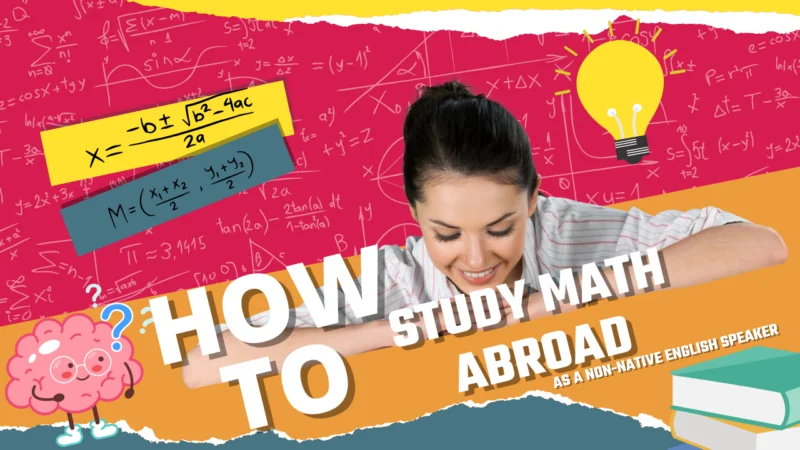
Share Post:
Studying math abroad as a non-native English speaker can be challenging, but it’s completely doable with the right approach.
The biggest hurdles are understanding complex math concepts while keeping up with lectures, assignments, and exams in English.
To succeed, you need to improve your academic English, get familiar with mathematical terminology, and adapt to different teaching styles
Table of Contents
Toggle1. Choose the Right University and Program
When applying to study math abroad, choose a university that offers a strong mathematics program and adequate support for international students.
Here are five top universities that excel in both mathematics and international student support:
1. Massachusetts Institute of Technology (MIT) – USA
- Consistently ranked among the world’s best for mathematics.
- Offers English Language Studies (ELS) support for non-native speakers.
- Free online MIT courses (OpenCourseWare) help students prepare before arriving.
- Strong international student community with tutoring programs and math workshops.
2. University of Cambridge – UK
- Home to the Mathematical Tripos, one of the most rigorous math programs globally.
- Offers pre-sessional English courses and foundation programs for students who need language support.
- Provides supervision (one-on-one tutoring) to help students struggling with coursework.
- International students can access college-specific language support and writing help.
3. ETH Zurich – Switzerland
- Ranked among the best in Europe for mathematics and engineering.
- Some Master’s courses are available in both English and German.
- Offers preparatory language programs and academic writing support for non-native English speakers.
- Students can take intensive German or English language courses to adjust before starting the program.
4. University of Toronto – Canada
- Top-ranked in North America for mathematics research and applied math.
- Offers the English Language Learning (ELL) program to help non-native speakers improve their academic English.
- Provides math-specific tutoring and workshops through its student support services.
- Offers scholarships and financial aid specifically for international students.
5. National University of Singapore (NUS) – Singapore
- Asia’s leading university for mathematics, with globally recognized degrees.
- Provides English proficiency courses for international students before and during their studies.
- Large, diverse student community with peer tutoring programs and international student advisors.
- Offers customized study skills workshops for students struggling with language barriers in technical subjects.
2. Improve Your English Before You Arrive
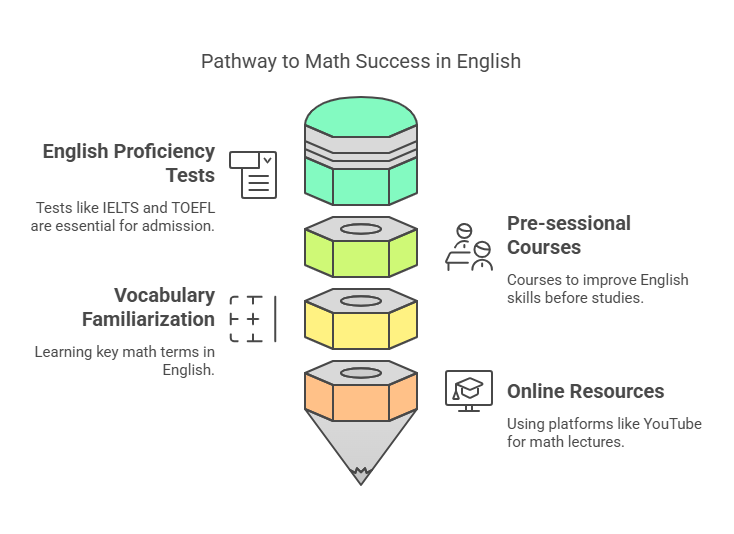
While math itself is a universal language, understanding lectures, solving problems, and writing exams in English requires strong language skills. To succeed, improving your English before starting your studies is essential. Most universities require an English proficiency test like IELTS or TOEFL.
If your score is borderline, consider enrolling in a university-approved pre-sessional English course to strengthen your skills before the semester begins. Another alternative is to take the PTE Academic exam, which is widely accepted by many universities.
This test evaluates your English skills in an academic setting and can be a flexible option for non-native speakers preparing to study abroad. Familiarizing yourself with mathematical vocabulary in English will also make learning easier.
Key terms like “integral,” “differential equation,” “theorem,” “proof,” and “derivative” are commonly used in lectures, textbooks, and exams. Using flashcards or apps like Quizlet can help you memorize and retain these words efficiently.
Watching math lectures in English is another effective way to prepare. YouTube channels like Numberphile, Khan Academy, MIT OpenCourseWare, and 3Blue1Brown provide high-quality content that can help you get accustomed to hearing mathematical concepts explained in English.
Turning on subtitles can also improve comprehension while reinforcing new vocabulary.
3. Master Mathematical Terminology in English
Mathematical language can be challenging, especially when dealing with advanced concepts.
Since lectures, textbooks, and exams will be in English, becoming familiar with key terms before you start your studies will make it easier to follow along and understand explanations without constantly translating.
Below is a small glossary of essential mathematical terms and their meanings:
English Term
Meaning
Derivative
Measures the rate of change of a function with respect to a variable (e.g., the slope of a curve at a given point).
Integral
Represents the accumulation of quantities, often visualized as the area under a curve.
Theorem
A mathematical statement that has been rigorously proven to be true.
Equation
A mathematical statement that expresses the equality of two expressions (e.g., x2+3x=7x^2 + 3x = 7×2+3x=7).
Proof
A logical sequence of statements demonstrating why a theorem or mathematical claim is true.
How to Practice and Improve Your Understanding:
4. Take Advantage of University Support Services
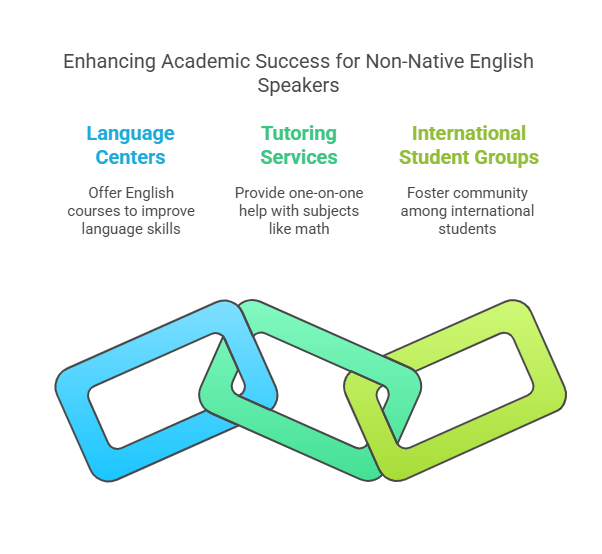
Language centers often provide free or low-cost English courses designed to improve academic writing, listening, and speaking skills.
Many institutions also have dedicated tutoring services where students can receive one-on-one help with math concepts, ensuring they fully understand the material. Additionally, international student groups provide a strong sense of community, allowing students to connect with peers who face similar challenges.
5. Develop Strong Note-Taking Skills
A helpful strategy is to use a combination of English and your native language at first, gradually transitioning to writing fully in English as your confidence improves.
One effective technique is to rely on mathematical symbols rather than full words whenever possible, since math notation is universal.
For example, using “∑” instead of writing “sum” can save time and reduce the need for translation.
It is also important to highlight or underline unfamiliar English terms so that you can look them up later and reinforce your understanding. If your university allows it, recording lectures can be an excellent way to revisit complex explanations and catch details you may have missed during class.
Developing these habits will help you absorb information more efficiently and improve your ability to study and revise effectively.




